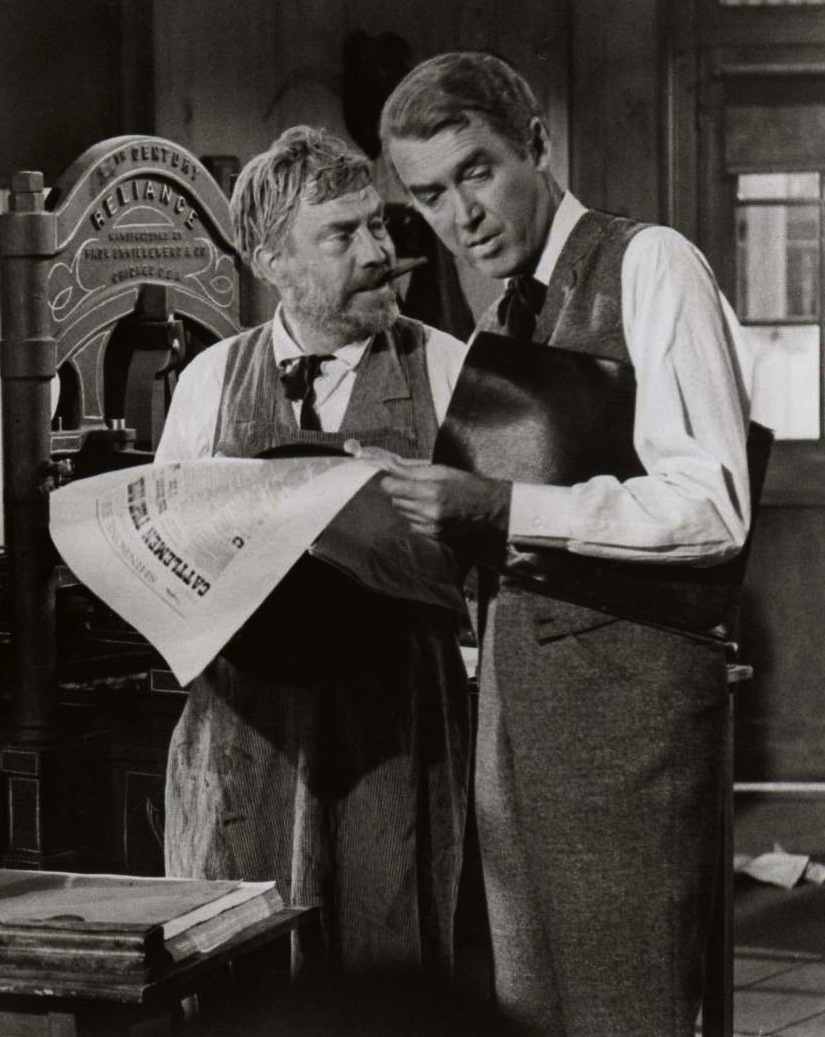Friday, October 4, 2013
PROFESSION OR CRAFT? There are those among the J-school crowd who would have you believe that newspapering is a profession. In their version of the story, the reporter stands with the doctor or the lawyer as an ethical creature whose noble code makes him a force for good in the community. At the other end of the spectrum are those who see wordsmithing as little more than a skilled trade. Reporters, like plumbers, electricians and auto mechanics, practice a craft that may be useful and even necessary but, ultimately, is just a job. In my experience, the truth lies somewhere in between.
My name is Michael Walsh. As a film critic, I had the opportunity to review more than a dozen movies in which newsmen (and newswomen) going about their business was the story. Among the first was director Norman Jewison's Gaily, Gaily (1969), a hyperactive adaptation of reporter-turned-screenwriter Ben Hecht's coming-of-age memoir in which a young man falls from grace and into journalism.
It was Hecht, together with his partner Charles McArthur, who wrote the classic Broadway stage comedy The Front Page (1928), which has been the subject of at least three feature film adaptations. The last (and least) of them was director Billy Wilder's The Front Page (1974), a major disappointment given the wealth of talent involved and the fact that it was released just as the Watergate scandal, one of American journalism's greatest hits, was playing itself out.
That moment would be remembered two years later, with the release of director Alan J. Pakula's critically acclaimed All the President's Men (1976). Based on the book by Washington Post reporters Bob Woodward and Carl Bernstein, it stands among the best newspaper-themed movies of all time.
Among the worst was 1994's The Paper, a look at a day in the life of a New York City tabloid. Despite his professed affection for newspapering, director Ron Howard focused on the enterprise's dysfunctional management, the very folk who have brought the business to ruin in the 21st Century.
And, finally, two unexpected gems. In 1987, Street Smart director Jerry Schatzberg gave Christopher (Superman) Reeve the opportunity to play a very different kind of reporter in a hard-edged drama of journalistic ethics and urban evil. And, in 1992, some subversive soul at Walt Disney green-lit choreographer/director Kenny Ortega's musical Newsies. An all-singing, all-dancing tribute to striking newsboys at the turn of the last century, the libretto contains such fire-breathing lyrics as "We're going over the wall / Better to die than to crawl / Either we stand or we fall / for once, once and for all!"
Print the legend, indeed.
LIKE EVERY GOOD newspaper, Reelingback.com has more than one section. Explore further and you'll find even more newspaper-themed content. For example, in the LOCAL NEWS section there's a page devoted to films Made In Canada, where I recall the 1974 National Film Board feature Why Rock the Boat?. There's a second page for films Made in B.C., with links to two newspaper movies, 1993's Impolite and High Stakes, from 1987. On a third page of Vancouver Memories, you can see how the entertainment trade paper Variety covered the Pacific Press strike of 1978-79. Visit the COMICS PAGE for movies Based on Comics, because, as we all know, in Superman the Movie (1979), Clark Kent works as a reporter for a great metropolitan daily. Among the items covered in ENTERTAINMENT are Books, in this case Alex Barris's wonderfully comprehensive Stop the Presses! The Newspaperman in American Films. And, in the section called People, you will find my interview with director Alan J. Pakula about the making of All the President's Men. Finally, if you visit the Quiz section, you can test your own movie knowledge with The Press Gang, an original Q&A created for today's edition of Reelingback.com.
